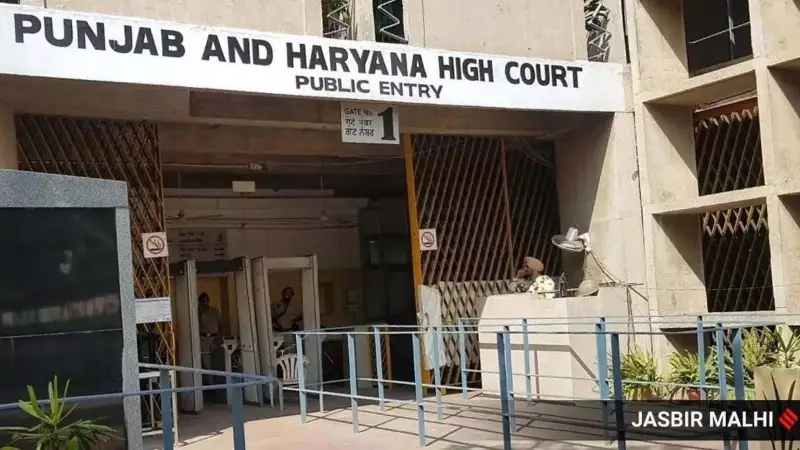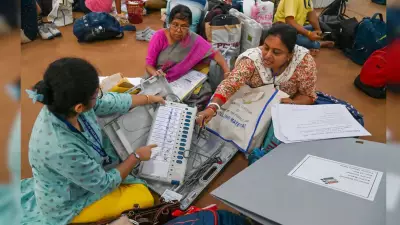
Four Years of Legal Limbo Ends Without Relief for UAPA Accused
In a significant development from the Punjab and Haryana High Court, accused Jaswant Singh Sohnewala has been denied bail in a Unlawful Activities (Prevention) Act case despite his plea pending before the court for four long years. The decision comes just days after another bench of the same court made observations about prolonged custody without trial conclusion amounting to punishment before conviction.
The division bench comprising Justices Gurvinder Singh Gill and Ramesh Kumari disposed of Sohnewala's bail application on Tuesday, November 11, 2025, without granting any relief to the accused who has been awaiting trial conclusion.
Contrasting Approaches to UAPA Bail Applications
This denial stands in stark contrast to the court's recent stance in another UAPA case. On November 3, 2025, a different bench of Justices Deepak Sibal and Lapita Banerji had granted bail to Jagwinder Singh alias Jagga, who had spent over five years in custody under the stringent provisions of UAPA.
In that judgment, the court had made a significant observation that "long custody without conclusion of trial amounts to punishment before conviction" - a principle that surprisingly didn't find application in Sohnewala's case.
Sohnewala's counsel, Jaspal Singh Manjhpur, expressed bewilderment at the contrasting outcomes. "How come the parameters used in Jagwinder Singh alias Jagga's case don't work in Jaswant Singh Sohnewala's case?" he questioned while speaking to The Indian Express.
The Tortuous Legal Journey
The statistics surrounding Sohnewala's bail plea reveal an astonishing judicial process. According to his lawyer, the bail application witnessed 49 hearings before 24 different judges over the four-year period from September 2021 to November 2025.
The case history shows that Sohnewala's bail was first listed before a single-judge bench in September 2021. On February 7, 2023, it was ordered to be transferred to a two-judge bench. The proceedings included:
- Nine hearings by four different single judges
- Forty hearings by twenty different division benches
- Ultimately ending with disposal without relief
This extensive legal process culminated without any positive outcome for the accused, despite the prolonged nature of both the custody and the bail proceedings.
Case Background and Allegations
The case originates from a First Information Report (FIR) filed at the Mukandpur police station in Nawanshahr. Interestingly, Sohnewala was not named in the initial FIR but was nominated later during the investigation.
According to case records, no recoveries were made from Sohnewala, and all his co-accused in the case have already been granted bail and are out of custody.
The prosecution's case alleges that Manjit Singh alias Duhra, who resides in Canada, sent an amount of Rs 45,791 to India to carry out unlawful activities. The case heavily relies on disclosure statements from co-accused, including Satnam Singh's statement about weapons procurement and Gurjit Singh alias Ghaint's allegation that Sohnewala had been instigating others for Khalistani activities and was the main leader.
The public prosecutor strongly opposed bail for Sohnewala, arguing that he had committed the serious offence of criminal conspiracy and abetting the waging of war against the Union of India.
Defense Questions Prosecution's Narrative
Sohnewala's defense counsel raised serious questions about the prosecution's theory. "Can anyone wage war against the Union of India with just Rs 45,000, a pistol, and a few cartridges?" Manjhpur asked rhetorically.
This rhetorical question highlights the defense's position that the evidence and allegations don't match the gravity of the charges brought under the stringent UAPA provisions.
The case continues to highlight the challenges in bail applications under UAPA, where the presumption against bail is significantly higher than in ordinary criminal cases. The contrasting outcomes in these two recent cases from the same high court also underscore the discretionary element in such matters and the varying judicial approaches to similar legal questions.
As Sohnewala continues to await trial conclusion, his case adds to the growing discourse around balancing national security concerns with individual rights and the principle of presumption of innocence until proven guilty.





